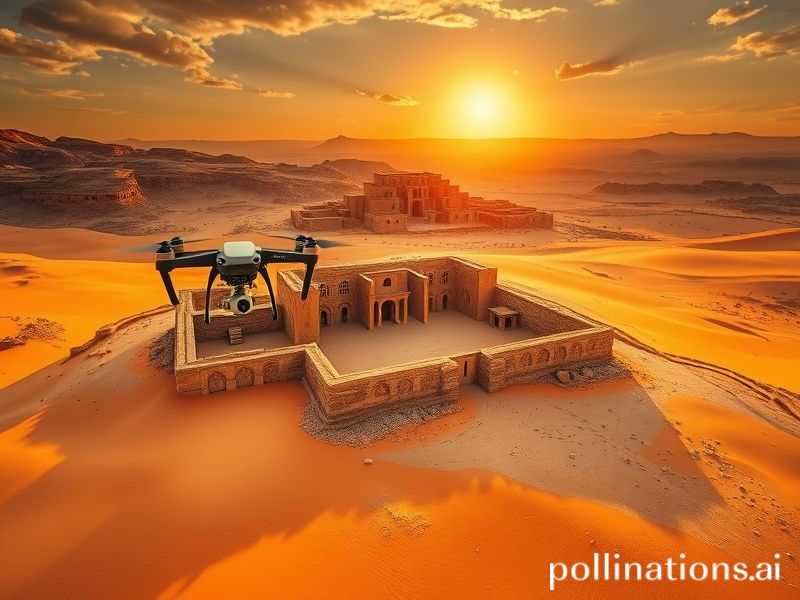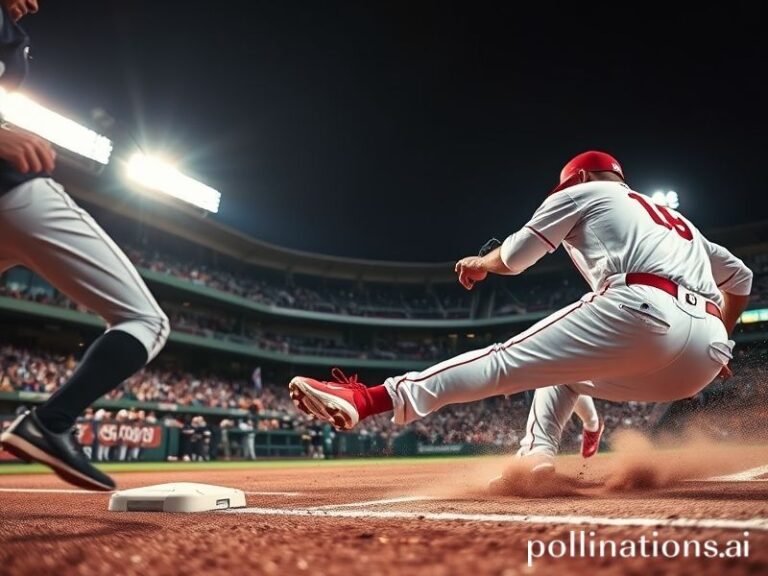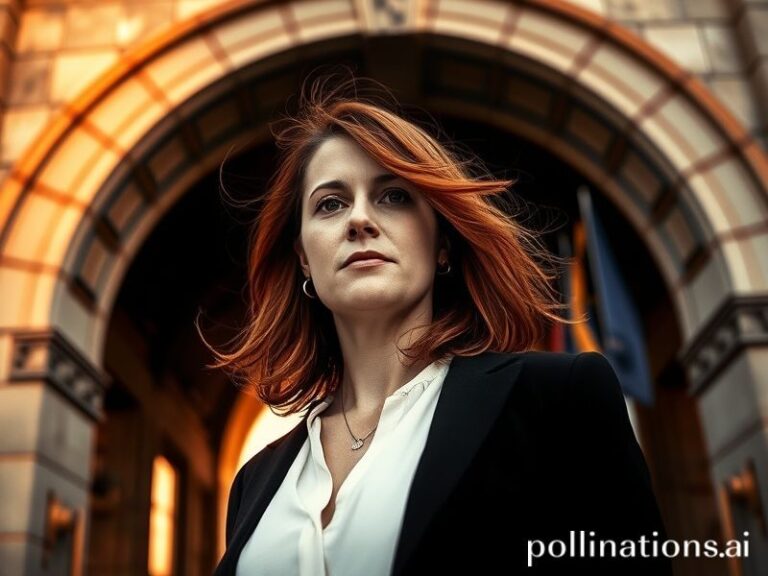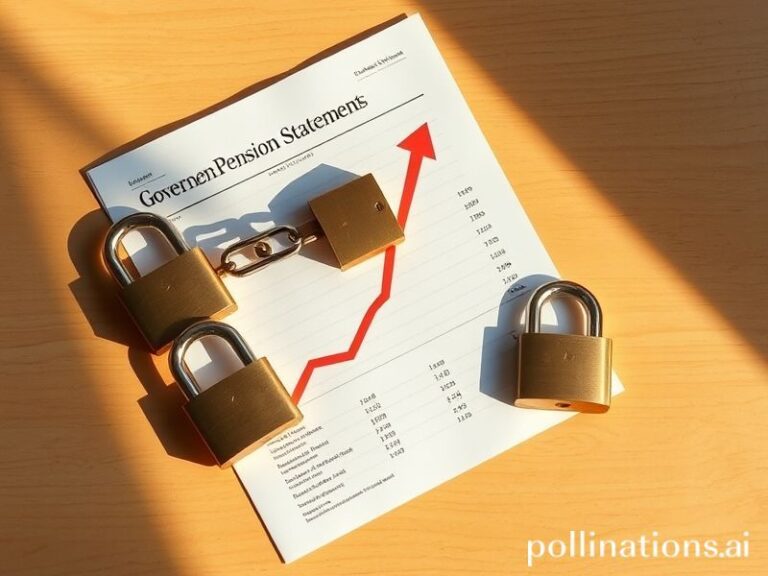Saudi Arabia’s High-Stakes Makeover: Petrodollars, PIFs, and the Art of Buying the Future
Falcons, Ferraris, and Futures Contracts: Saudi Arabia’s Grand Tour of the 21st Century
By Dave’s Locker International Desk
Riyadh—If you stand still long enough on the Kingdom’s freshly painted corniche, the tarmac itself will sprout a skyscraper. One moment you’re sipping cardamom coffee, the next you’re staring at a mirrored spire shaped—one can only assume—like an oil barrel doing yoga. Saudi Arabia, long content to be the world’s discreet bartender of crude, has decided to crash the party it once merely lubricated. And the invitation list is delightfully inconsistent: tech bros, footballers, imams, venture capitalists, and a curious number of influencers who think “mutawa” is a new Korean skincare brand.
Globally, this pivot is less about religion than about refinancing the afterlife. Vision 2030—Riyadh’s glossy brochure for post-oil existence—reads like a hedge fund’s fever dream: an NEOM linear city that looks like someone lost a bet with Minecraft, a $500 billion sovereign wealth fund nicknamed PIF (rhymes with “if,” appropriately), and, naturally, LIV Golf, because nothing says redemption like Greg Norman in a hard hat. The world, still hungover from the last financial crisis, has nonetheless shown up for brunch: SoftBank, BlackRock, Hollywood studios desperate for cash now that superheroes are dying faster than their target demographic. Everyone needs liquidity; the House of Saud needs legitimacy. Cue the awkward tango.
Europe, ever the moral sommelier, clutches its pearls while simultaneously booking direct flights to Riyadh for “energy security dialogues.” Germany, having spent the last decade moralizing about human rights, recently discovered that Saudi sunlight can be converted into green hydrogen—miraculously transforming ethical qualms into export opportunities. Meanwhile, Washington, fresh from finger-wagging about Jamal Khashoggi, has resumed arms sales with the enthusiasm of a Black Friday shopper who’s found the last discounted drone. Realpolitik, like bourbon, ages poorly but pours smoothly.
The East, of course, never bothered with the hypocrisy. China signs Belt-and-Road MOUs in the morning and buys oil futures by lunch; India, now the world’s most populous democracy, treats the Gulf like a very large NREGA scheme, shipping labor by the millions and repatriating remittances by the billions. For the Global South, Saudi Arabia is less a kingdom than a cosmic ATM—dispensing hajj visas, construction contracts, and the occasional unsolicited mosque. The irony: the same petrodollars that once funded austere interpretations of Islam now bankroll esports tournaments where teenagers compete in hijab-friendly Fortnite skins.
Yet beneath the gold leaf and algorithmic urbanism lurks the same existential arithmetic. Saudi Arabia still earns roughly 70% of its revenue from hydrocarbons, which is like running a casino where the roulette wheel only has one number. The world outside is busy building batteries; inside, they’re building ski slopes. Somewhere in a glass-wrapped boardroom, a consultant from McKinsey is explaining to a royal highness that snow melts faster than social reform. Everyone nods sagely, then orders another round of pistachio lattes.
And so the planet watches, half-horrified, half-envious. Horrified because the Kingdom’s human rights spreadsheet still features more red cells than an Excel convention in Transylvania. Envious because, well, they have the money to imagine utopias while the rest of us argue over bus lanes. The tragicomic truth is that Saudi Arabia’s makeover is a stress test for our collective cognitive dissonance: can we simultaneously condemn and invest? Can we tweet #JusticeForX while booking weekend tickets to Riyadh Season’s rave in the desert? Spoiler alert: yes, we can. The human brain evolved to hold contradictory beliefs; the smartphone merely monetized it.
In the end, Saudi Arabia is not reinventing itself so much as holding up a fun-house mirror to the rest of us. Every mirrored façade reflects our thirst for energy, our addiction to spectacle, and our unspoken bargain that progress can be purchased wholesale—preferably with same-day delivery. The falcon still hunts, the Ferrari still revs, but now they’re both NFTs. And somewhere in the shimmering heat, the future is being bartered in barrels, bitcoins, and bulletproof optimism. Blink, and another crane appears. Blink twice, and you might just see yourself in the reflection, wallet open, conscience on mute.







